The return to Dubai is something of a homecoming for Tristin Farmer. Having showcased his culinary skills as chef patron at the city’s now-defunct Marina Social, the Scottish chef elected to take his talents to Singapore, where he dazzled in the kitchen of Bjorn Franttzen’s Restaurant Zen. Seven years on, he is back with Maison Dali, where nothing is as it seems. Here, he talks about the inspiration behind the new concept, Dubai’s dynamic dining scene and the key to staying relevant.
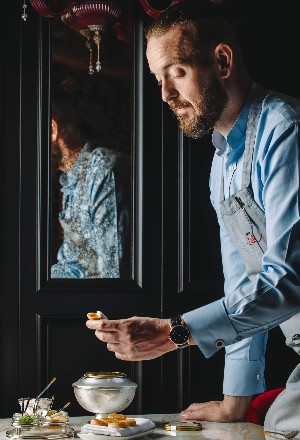
Congratulations on the opening of Maison Dali. Can you tell us about the inspiration behind the concept and what guests can expect?
We started working on Maison Dali in January 2024 and set out to do the unexpected. Our inspiration came from wanting to come back to Dubai and create a homegrown concept; to live, cook and work here every day. As the concept, design and layout was developed and evolved over time, my business partner said: “Do you realise how, in many ways, you are similar to Salvador Dali?” He was an incredible artist, his work makes you think and nothing is as it seems. My food is very similar; we also have incredibly similar personalities in many ways.
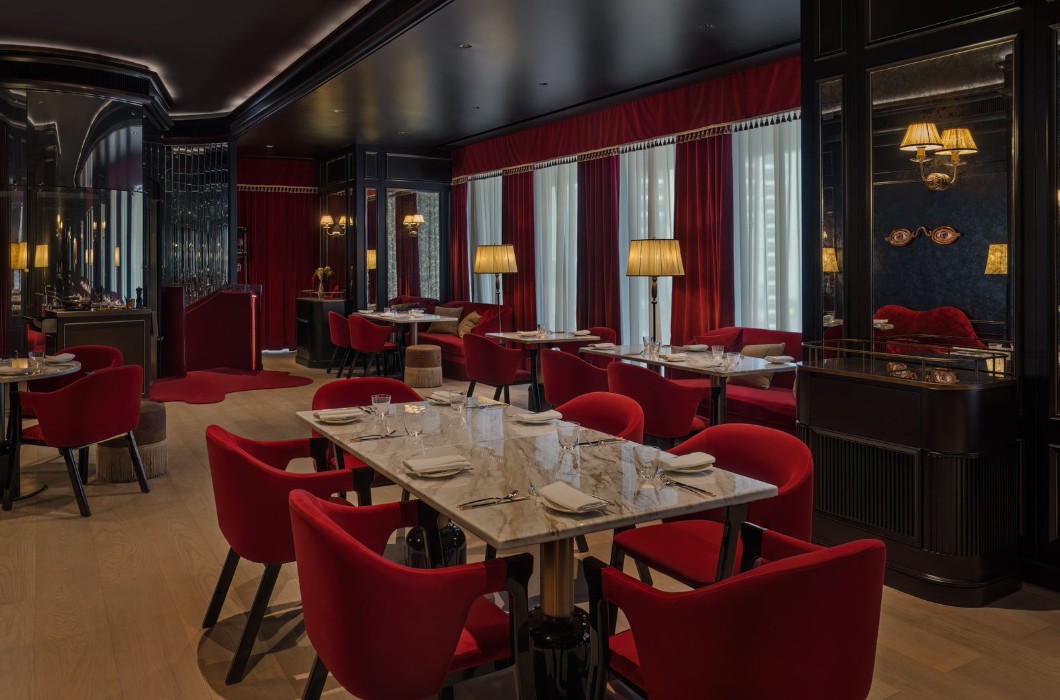
We wanted to create a high energy modern brasserie with excellent cooking and great drinks, yet accessible with personality. Surrealism in a restaurant where nothing is as it seems; the food is simple in approach, presentation and plating. Elegant yet with three Michelin-star cooking, complexity and depth of flavour. Is it a brasserie? Is it fine dining? Is it casual? A neighbourhood restaurant that contradicts itself at every step.
The menu spotlights Mediterranean-Japanese cuisine. What is your creative process when developing new dishes?
We spent six months cooking, researching and developing the menu. The creative process starts with the restaurant’s concept, planning to write an à la carte menu, then the layout of the menu and how many dishes. As the concept evolved, we took inspiration from brasserie classics and seasonal Japanese ingredients. I have grown to love Japanese cuisine during my time living in Singapore. It’s umami-driven, elegant and [embodies] a dedication to absolute perfection, but looks incredibly simple. The next step was to write recipes and start cooking, following the philosophy. The food looks simple and it’s written on the menu as a simple brasserie dish. But behind the scenes, it’s built on layers of flavour with complexity from cooking techniques, aging fermentation and umami.
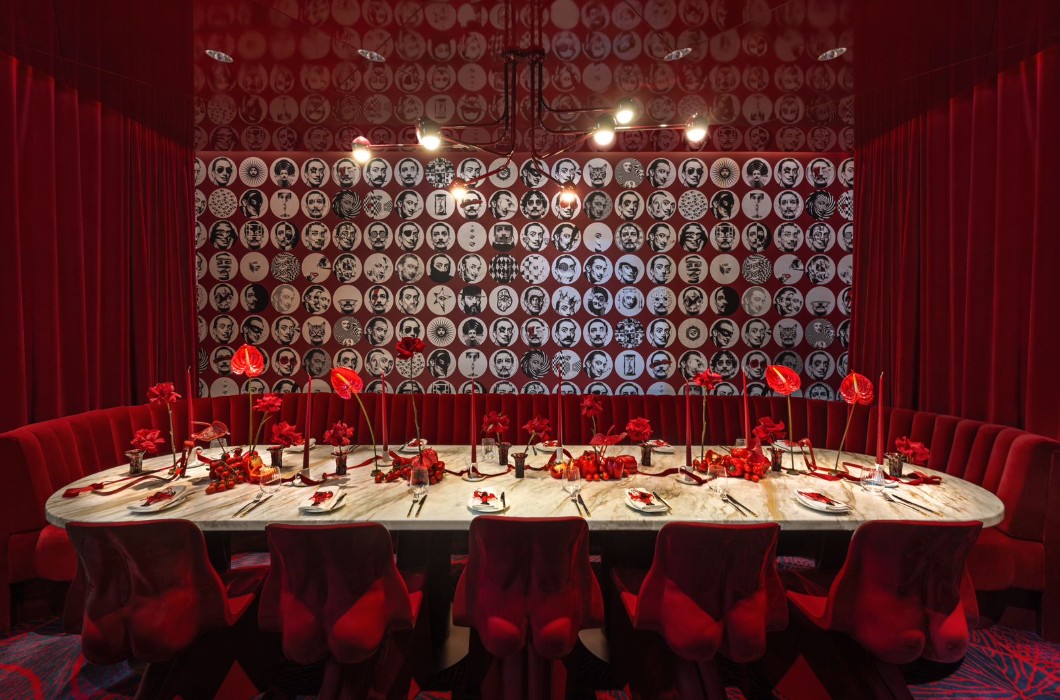
Tell us about some of the highlights.
I have a lot of personal favourites, but what is fun to see is what guests gravitate towards and their feedback. Some dishes that are slowly becoming signatures and most ordered are the Japanese hamaguri clams, cucumber dressing, wasabi, shiso and ginger; Miso turbot, grilled over embers, yuzu and star anise beurre blanc; Nishiawa wagyu tenderloin, flambé tableside with truffle and morel Diane sauce. For dessert, it would be the honey toast, biscoff mouse and crème cru ice cream.
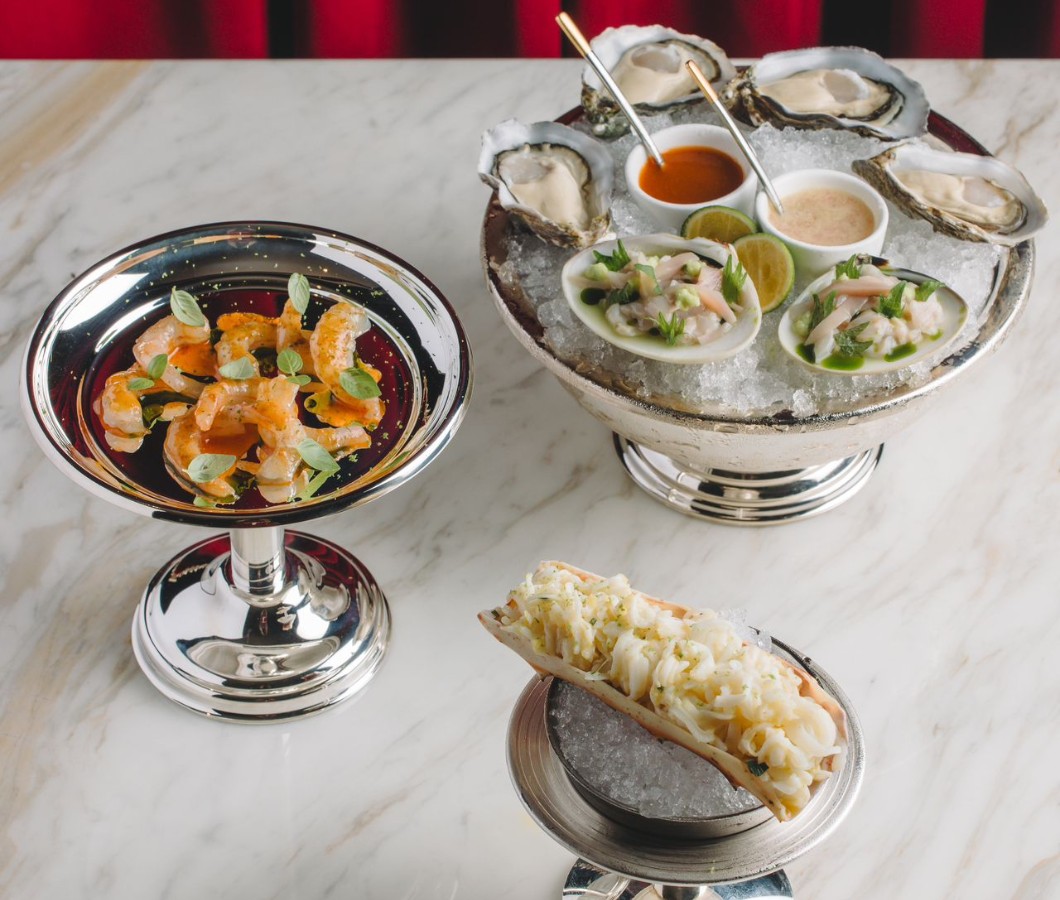
It’s not your first experience of Dubai’s much-vaunted culinary scene; what are the attributes of Dubai’s food scene that makes it so exciting and enticing for chefs and restauranteurs?
The culinary scene in Dubai has gone from strength to strength since I moved to Singapore seven years ago. There is more of a focus on smaller, homegrown restaurants with a real drive to evolve, develop and serve incredible food. It’s such a dynamic and diverse culinary scene, with a strong economy and guests that crave high quality cooking. We wanted to do something special and also base ourselves here, in a city I love, creating a concept in Dubai for Dubai. We are not an international brand with an offshoot in Dubai. I will be living here and cooking in Maison Dali every day. We also considered the geographical location; we have set up our head office here and any expansion will grow from Dubai.
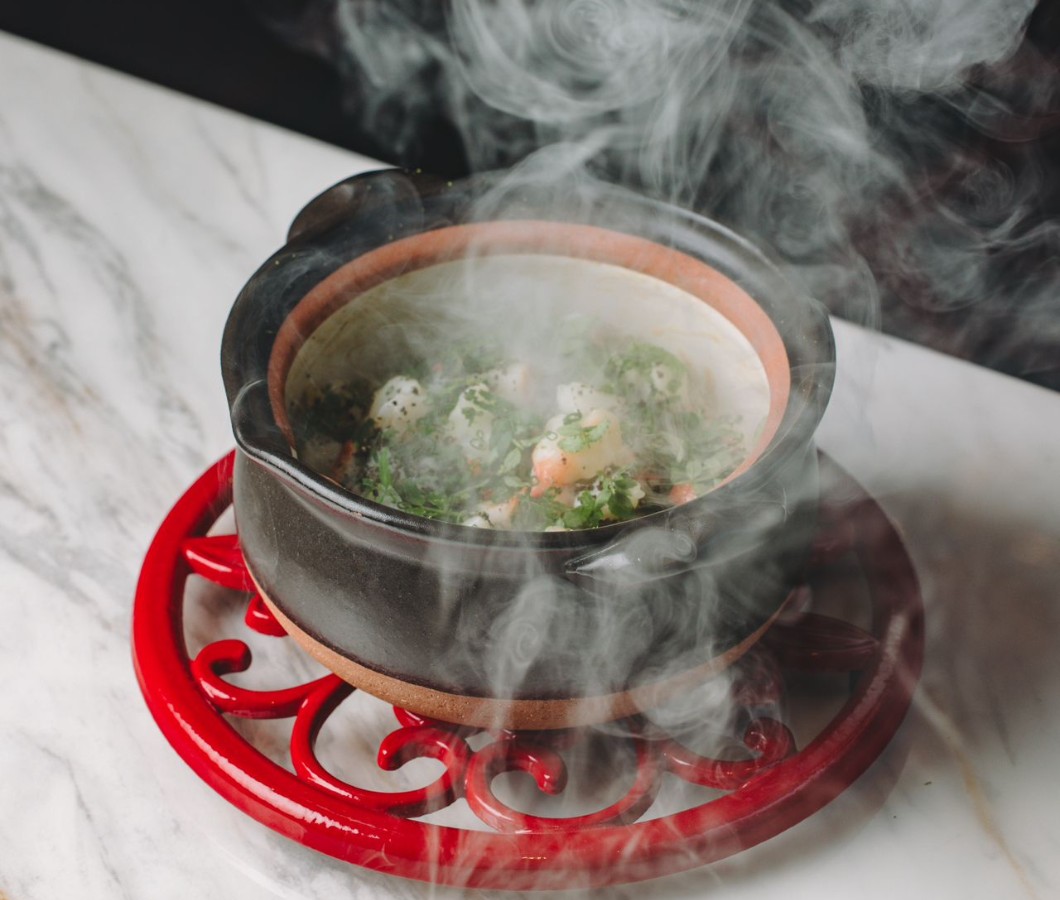
It’s a very competitive market;
what is the key to staying relevant?
I have yet to find a market that isn’t competitive, of course some more than others. To stay relevant for us means constantly pushing to be better. We have a responsibility to our guests and ourselves to be better every day.We would like to stand out by cooking good food with innovation and consistency, great drinks and service with personality; greeting our friends, regulars and making them feel special. True hospitality is making each guest feel special. We are building a strong team and are investing in our people and I hope each time you come to see us, you recognise the same faces.
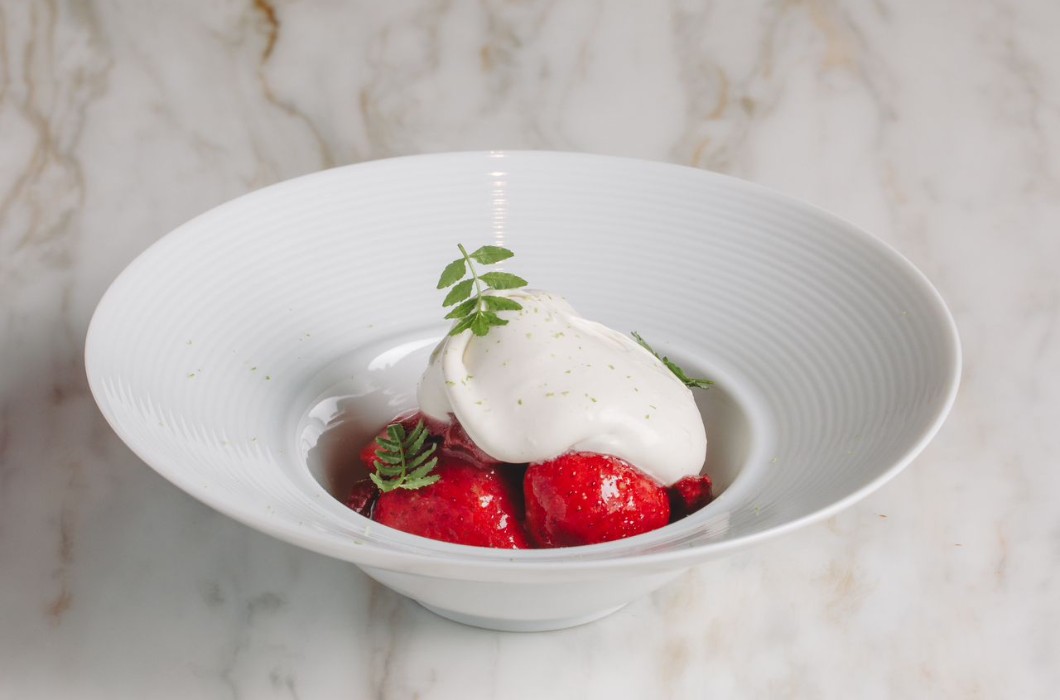
As someone who has experience of opening and working in restaurants throughout the globe, most notably in the UK and Singapore, is there a need to adjust recipes for the local palate and local ingredients in other locations?
Yes and no. What is important is knowing your market, your audience, your guests and their preferences. Weather plays more of a part in menu planning than you might imagine. Think trying to serve crispy meringue in the humidity of Singapore or serving bread in a Scottish winter. There is definitely a balance of knowing your audience, but also staying true to your beliefs and principles.
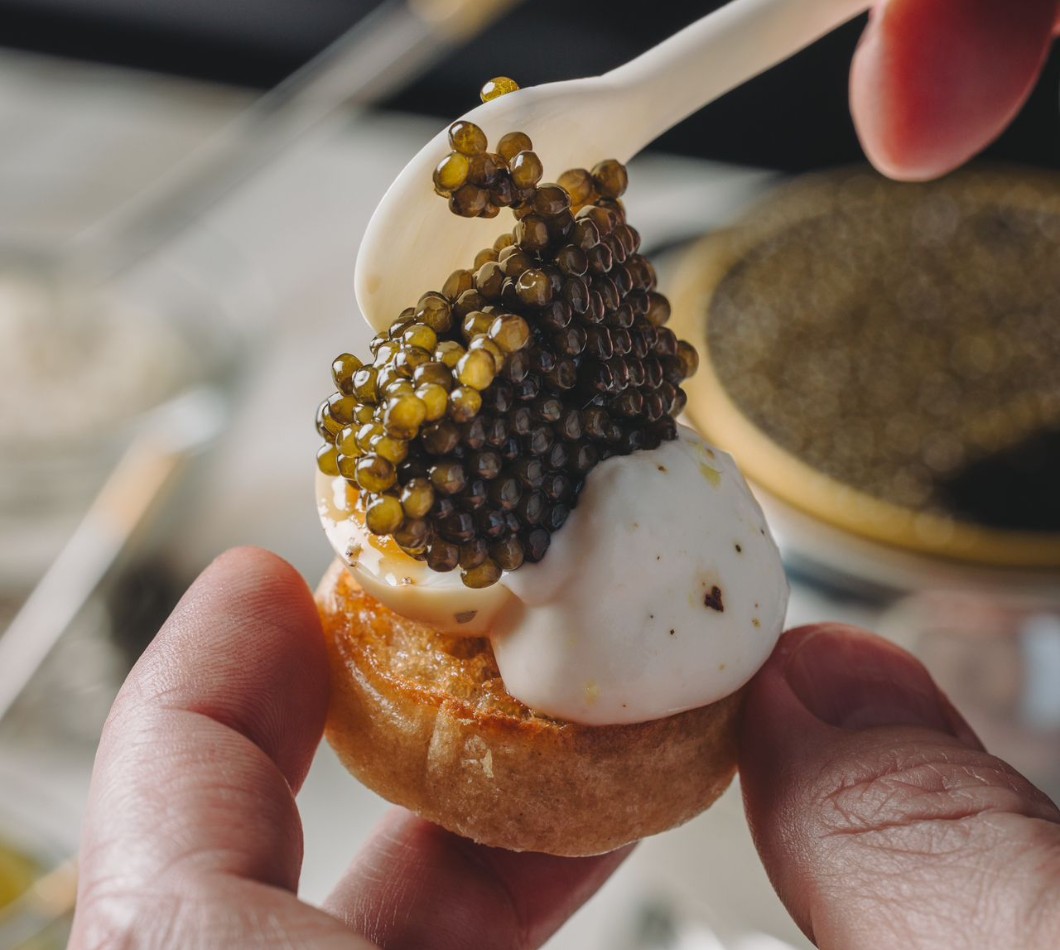
Outside of cooking, do you have any other passions?
To be honest I don’t spend much time outside the restaurant. You will find me most days in the kitchen. I like to stay fit, work out, run and play tennis.
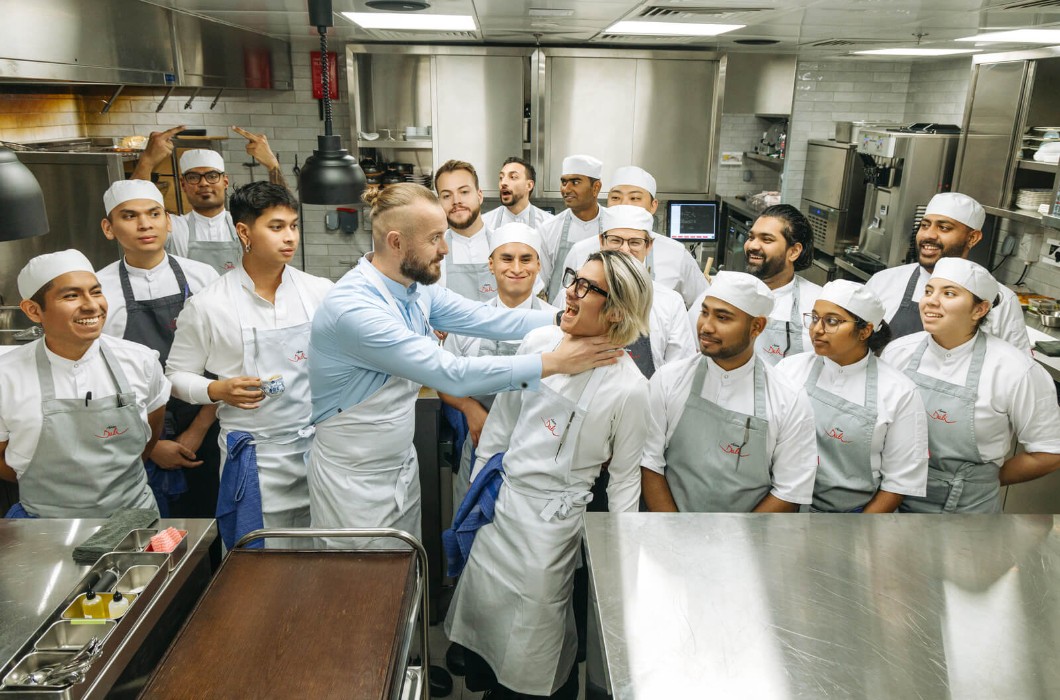
And finally, are there any other exciting announcements or new openings you would like to tell
us about?
We have more projects coming in the near future, but it’s too early to talk about these yet. This summer we will be running a six-week pop up restaurant in Copenhagen; it will be a tasting menu of 14 courses. I’m actually on my way there now for research and development. You will find us at Tivoli within Nimb Hotel from June 12 this summer.
THE GRILLING...
FIRST DISH YOU REALLY ‘MASTERED’ COOKING? Not sure I would say it was one dish. The start of my career was small tasks as a commis, learning all the basic skills, ingredients and butchery. It developed from there.
WHAT MOTTO DO YOU LIVE BY OR COOK BY?
Keep pushing.
BEST PIECE OF ADVICE YOU’VE BEEN GIVEN THROUGHOUT YOUR CAREER? One thing that sticks in my mind was Gordon Ramsay telling me to not stress about mistakes that have not happened yet. Accept you will make errors, always learn from the mistake and don’t repeat it.
FAVOURITE DISH TO COOK? I love to cook and work with shellfish. My favourite thing to cook is Sunday breakfast and stuffed omelette.
THREE INGREDIENTS YOU COULD NEVER COOK WITHOUT? Salt, butter and lemon.
Bar your own, favourite restaurant in the world? I don’t like to say I have a favourite, but I’ve had some incredible experiences. I usually put an incredible restaurant in my top five meals. They are currently Mirazur, Faviken, Etxebarri, Koan, Maeda in Kyoto and Louis XV Monaco—ok that’s six!
FAVOURITE COUNTRY/CITY TO VISIT FOR FOOD? Japan/Tokyo.
IF YOU HAD A LAST MEAL, WHAT WOULD IT BE AND WHY? Well, I should say my mum’s cooking, but it would have to be Thai food on the beach, watching the sunset.
GREATEST FOOD INDULGENCE? Easy—I love caviar.
Strangest thing you’ve eaten? Not sure if I would say it’s the strangest thing, but definitely the most memorable flavour (that was definitely not my favourite) was Durian fruit.
MOST MEMORABLE MEAL? Restaurant Andrew Fairlie at Gleneagles. It was my very first Michelin-star meal after a long summer working at my first full time job. It was the beginning of a love for fine-dining restaurants and excellent cooking. It was also the first time I ever had a glass of Champagne.
WHO HAS INSPIRED YOU MOST THROUGHOUT YOUR CAREER AND WHY? There have been a few chefs and I have been fortunate enough to work alongside them.
For sure, I would have to say Gordon Ramsay and
Thomas Keller.
FAVOURITE COOKING TV SHOW AND FAVOURITE CHEF’S AUTOBIOGRAPHY? The latter would be Anthony Bourdain’s Kitchen Confidential and for a TV show, it would have to be Chef’s Table on Netflix.











